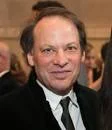Politics/Books
A review
Become America: Civic Sermons on Love, Responsibility, and Democracy
Eric Liu
Sasquatch Books, 2019, 302 pages
Citizen University Sermons
By Wade Lee Hudson
Eric Liu’s latest book, Become America: Civic Sermons on Love, Responsibility, and Democracy, is eloquent and inspiring. His exhortations to be engaged in civic activism, beyond voting, are compelling. In the end, however, he comes up short. He neglects the need for new, holistic structures that nurture an energizing cultural environment.
The book consists of “civic sermons” that Liu presented at various locations throughout the country as part of a series of “Civic Saturdays,” a project of the Seattle-based Citizen University, which is dedicated to “building a culture of powerful, responsible citizenship.” In the Preface to the book, Liu declares:
We are the counterculture now. In a culture of celebrity worship and consumerism, we stand for service and citizenship. And in the age of hyper-individualism, we practice collective action and common cause. In a time of sentimentalism and showy sanctimony, we stand for discernment and humility. In the smog of hypocrisy and situational ethics, we still live and breathe the universal timeless values and ideals of the Golden Rule, the Tao, the Declaration, and the Preamble of the Constitution. That is radical.
In the “A Divided Heart” chapter, Liu reports that a friend, Mark, who was a founder of the Tea Party, in so many words said, “Millions of Americans have felt left out and put down, told that they’re deplorable racists and bigots and sexists if they challenge the elites and insiders who are tolerant of everyone but them. They're tired of it, and with Trump, they found a way to say so.” Become America and the Citizen University aim to speak to these people.
Liu has concluded “Americans today lack the coherence and moral clarity and civic self-possession to resist a real Hitler, and that's one thing we’d better work on.”
Read More













